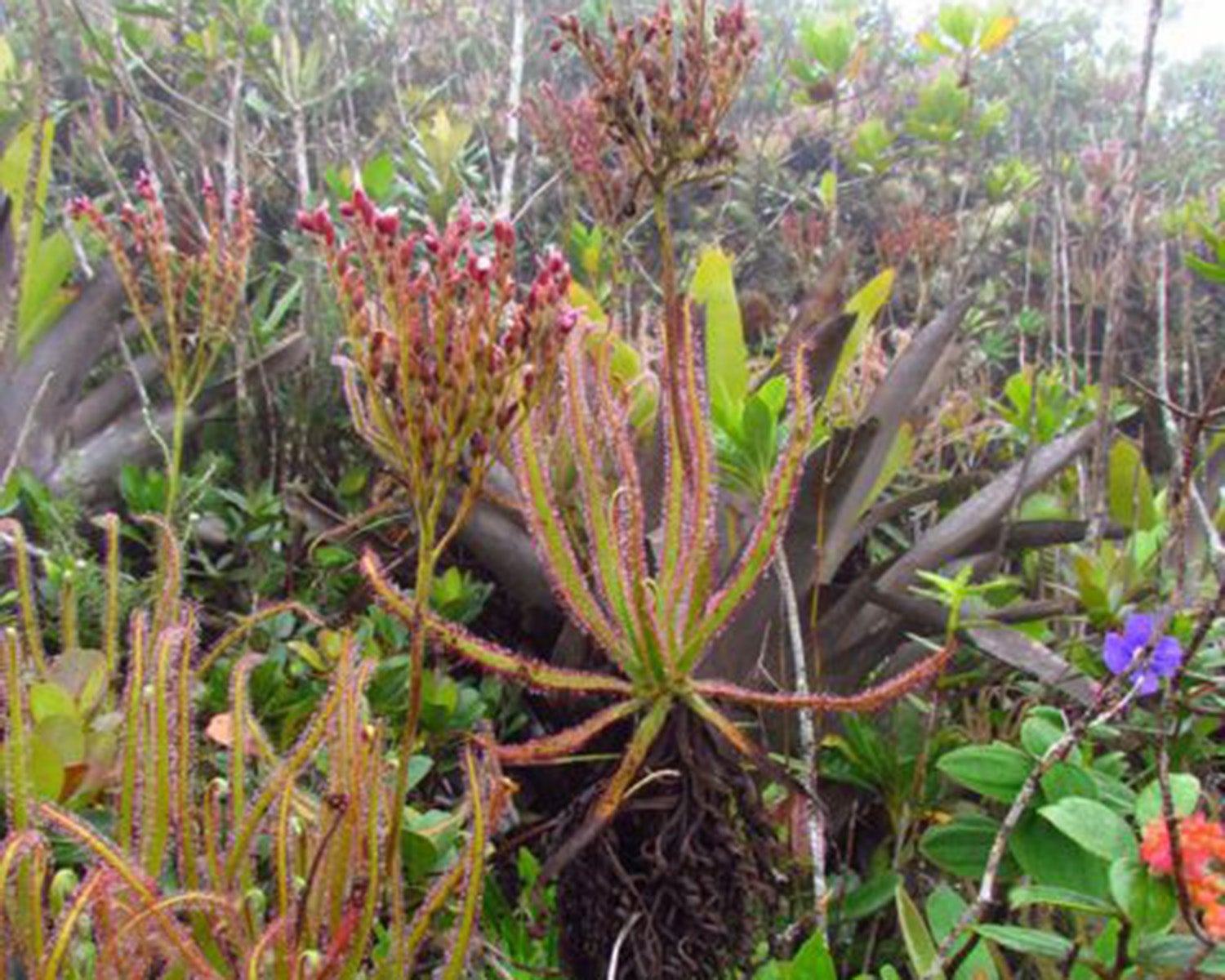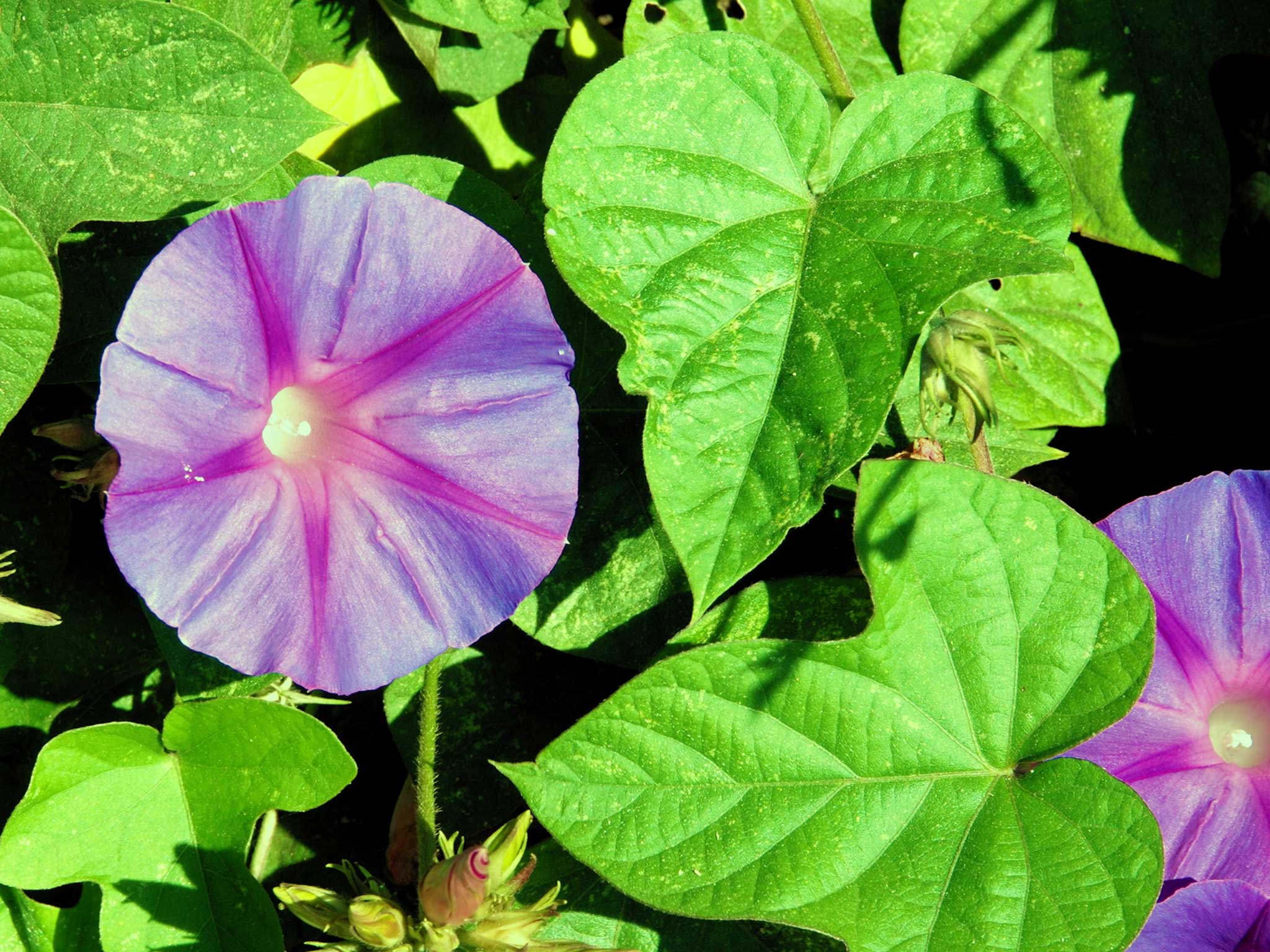One in five of all plant species threatened with extinction
Very few of the 'important plant areas' in the world have conservation protection

A fifth of all 400,000 plant species in the world are threatened with extinction, a major new study has said.
The "state of the world's plants" report by the Royal Botanic Gardens, Kew, is the first study of the global status of plants.
It warns that many plants are living on borrowed time in the face of large-scale agriculture and the international plant trade in fashionable flowers.
Climate change is also set to have an effect by drying out areas populated by certain plants, but scientists said this needs further investigation.
Steven Bachman, lead researcher at Kew Science and co-author of the report, said clearing areas for livestock and crops was the biggest threat to the survival of plants - many of which hold the key to future climate challenges.
"When you add it all up, climate change is a threat, but the main dominant threat at the moment is agriculture," he told The Independent.
"The conversion of habitats into areas for farming and livestock, taking those natural habitats, for products like palm oil, is the biggest problem."
The wild harvesting trade was the second biggest threat, with international traders trying to get hold of fashionable plants such as orchids, said Mr Bachman.
Some 1,771 areas of the world have been identified as "important plant areas" (IPAs), but very few have conservation protection, the study said.
The report also estimates there are 391,000 vascular plants - which exclude mosses and algae - in the world, with 2,034 new species found in 2015 alone.
New finds include a huge insect-eating sundew discovered via Facebook, five new types of onion, a three-metre (10ft) tall slipper orchid, and a close relative of the sweet potato.
In the UK, which has important habitats such as Atlantic woodlands and Celtic rainforests, 165 IPAs have been identified, from the Lizard Peninsula in Cornwall to the west coast of Scotland, while work is being done to identify sites in UK Overseas Territories.
Globally there are 4,979 invasive plants, with the problem of non-native species such as cheatgrass, spotted knapweed and Japanese knotweed costing £1.7 billion in the UK.
The report also reveals that less than a tenth of the world's known plants, around 31,000, are used by humans, with the major uses being medicines, food and fuel.
It highlights the importance of collecting samples of "crop wild relatives", cousins of plants humans use as common crops which may have traits that could help make food plants more resilient to a changing climate or pests and diseases.
"What we have at the moment is a real monoculture, we're relying on just a few crops to feed us for everything," said Mr Bachman.
"We have these wild relatives of those crops, and if you compare our domesticated crop with the wild relative, they are more resilient to disease.
"We need to breed them back in. Plants are really going to be part of the solution to food security in the future. At the moment they're a bit underappreciated."

Wild relatives of crops are among some of the plants found last year, such as Canavalia reflexiflora - a legume related to the Brazilian jack bean - five new onions related to the cultivated onion Allium saxatile, and a species of Ipomoea from Bolivia which is a close relative of the sweet potato.
Other new discoveries in 2015 include a 1.5 metre (5ft) tall Brazilian sundew Drosera magnifica, first identified on Facebook by a sundew specialist reviewing photos taken years earlier by an orchid hunter, and a 105-tonne tree Gilbertiodendron maximum, in Gabon.
Professor Kathy Willis, director of Kew Science, said the importance of the study came down to "the role plants play in every aspect of our life," and said the report set a baseline for the first time on key indicators of how plants were faring.
"Given how absolutely fundamental plants are for human wellbeing, for food, fuel, climate regulation, it's pretty important we know what's going on," she said.
Before now, there had been global assessments of the world's birds and mammals but not of plants, she said.
"I do find it extraordinary we worry about the state of the world's birds but we don't worry about the state of the world's plants.
"Unless we look at this information, the knowledge gaps, and then do something about it, we are in a very perilous situation, if we ignore the thing that underpins all our human wellbeing," she warned.
Join our commenting forum
Join thought-provoking conversations, follow other Independent readers and see their replies
Comments
Bookmark popover
Removed from bookmarks